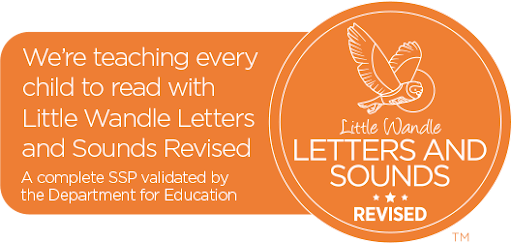Phonics and Early Reading
 alphabet represent a different sound, that these can be used in a variety of combinations and are put together to make words. The children learn to recognise all of the different sounds and combinations that they might see when they are reading or writing. Our phonics teaching starts in Nursery and follows a very specific sequence that allows our children to build on their previous phonic knowledge and master specific phonic strategies as they move through school. As a result, all our children are able to tackle any unfamiliar words that they might discover. At Yohden we also model these strategies in shared reading and writing both inside and outside of the phonics lesson and across the curriculum. We have a strong focus on the development of language skills for our children because we know that speaking and listening are crucial skills for reading and writing in all subjects.
alphabet represent a different sound, that these can be used in a variety of combinations and are put together to make words. The children learn to recognise all of the different sounds and combinations that they might see when they are reading or writing. Our phonics teaching starts in Nursery and follows a very specific sequence that allows our children to build on their previous phonic knowledge and master specific phonic strategies as they move through school. As a result, all our children are able to tackle any unfamiliar words that they might discover. At Yohden we also model these strategies in shared reading and writing both inside and outside of the phonics lesson and across the curriculum. We have a strong focus on the development of language skills for our children because we know that speaking and listening are crucial skills for reading and writing in all subjects.Phonics at Yohden
In Nursery there is an emphasis during this phase to get the children to attune into the sounds around them laying the foundations to begin Phase 2 in Reception. This is developed through sharing a range of high-quality stories and poems, learning range of nursery rhymes and activities to support listening and attention skills (including oral blending)
Additional practice is given daily to children who need it but in smaller steps with more repetition, so that every child secures their learning.
Reading for Pleasure - Early Years and Key Stage 1
- Teaching of poetry, which includes performing and learning a range of poems by heart.
- Daily storytime.
- Whole class reading sessions which include a range of books that are mapped out to ensure children have a rich reading diet, vocabulary is explicitly taught and children can learn key phrases in the book.
- Book areas within the classroom which have a careful selection of books, including books by the focus author.
- Use of Little Wandle Letters and Sounds Revised ‘Foundations for a Love of reading’ stories in nursery.
- Alongside children’s decodable reading book, children also take home a reading for pleasure book each week. In each year group, children will take home a range of book by authors, including some which they have read in class.
If you are a parent and would like more information about how to support your child with phonics at home, please follow the link to find the Reception and Year 1 overview as well as videos of the sound pronunciations, letter formation sheets and other helpful resources.
